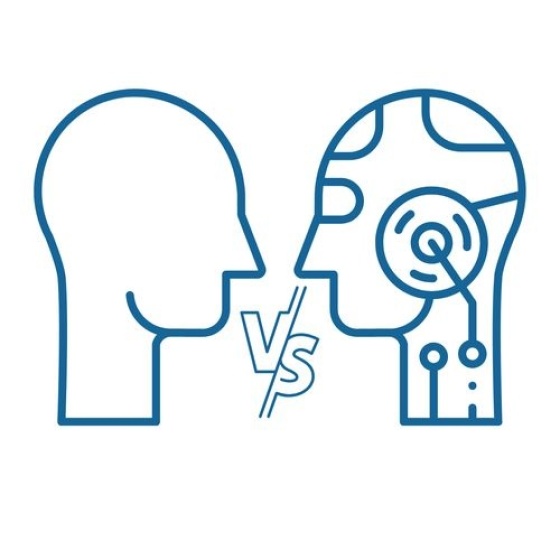Will Artificial Intelligence Replace Real Estate Professionals?

Thanks to automation and predictive analytics, Artificial Intelligence (AI) is profoundly transforming the practices of real estate agents, developers, and investors, as well as the property search experience for clients.
For professionals, it significantly increases efficiency and simplifies daily operations by streamlining routine tasks. But are we in the midst of a transformation where AI serves as a complementary tool? Or should we prepare for a gradual replacement of traditional industry players by autonomous technologies?
AI at the Heart of Real Estate Transformation
AI plays an increasingly central role in the digitalization of the real estate sector, enhancing productivity and accessibility of services. Its impact is already visible across several key areas, including:
Automation of Processes
One of AI’s most significant contributions lies in automating repetitive administrative tasks. These technologies can, for instance, optimize appointment scheduling and client management through better lead qualification. AI can sort and analyze inquiries to identify the most promising prospects, allowing you to focus on high-value cases. Similarly, AI tools can assist in writing property listings, generating engaging, SEO-optimized descriptions in seconds. According to McKinsey, AI-driven automation could save real estate companies up to 30% of their administrative management time, enabling them to dedicate more energy to human interactions and negotiations.
Predictive Market Analysis
AI now makes it possible to anticipate market trends with unprecedented accuracy — from evaluating property prices to identifying high-potential areas. By analyzing transaction histories, interest rates, infrastructure developments, and other factors, machine learning models can predict future property values. By cross-referencing economic and demographic data, predictive tools can guide investors on the best timing for transactions, while emerging platforms use AI to detect up-and-coming neighborhoods based on price evolution and population trends.
3D Modeling and Virtual Tours
AI, when combined with virtual reality (VR) and augmented reality (AR) technologies, is revolutionizing the property viewing experience. From immersive virtual tours that allow clients to explore properties remotely, to 3D modeling tools that let them virtually redesign interiors, simulate renovations, or test different furniture layouts, these innovations meet buyers’ needs while optimizing professionals’ time.
AI and the Client Relationship
While AI enhances operational processes, it also redefines how real estate professionals interact with their clients.
Personalized Client Service
Thanks to AI, interactions between professionals and clients are becoming more targeted and efficient. Chatbots and virtual assistants provide instant answers to client questions, 24/7, improving the user experience. Algorithms analyze user preferences and behavior to deliver tailored recommendations, presenting properties that perfectly match their criteria. Real estate professionals can also expand their reach to international clients without language barriers, using advanced translation tools powered by AI.
Enhanced Customer Experience
AI streamlines the buying and renting journey, making services more intuitive and interactive. Buyers now have access to platforms that simplify property comparison, allowing them to rate and rank listings based on appeal. Other tools estimate negotiation margins in real time, offering data-driven advice. Another major benefit: AI accelerates administrative procedures, including e-signatures, rental application screening, and mortgage approval.
Challenges and Ethical Considerations of AI
Despite its many advantages, the integration of AI into real estate raises important ethical and privacy concerns. The widespread use of AI tools requires extensive data collection, which brings risks related to data protection and cybersecurity.
Algorithmic bias is another key issue: AI decisions or recommendations may reflect the inherent biases of the data used, and transparency in how those decisions are made remains a major challenge.
While AI is undeniably transforming the real estate sector — enhancing efficiency, analytical precision, and customer experience — it will not fully replace professionals. Real estate experts bring irreplaceable human value, such as emotional intelligence (an algorithm cannot yet understand a buyer’s emotions and aspirations as well as a human), advisory expertise (AI provides data, but only human judgment can interpret and contextualize it), and negotiation skills (seasoned professionals know how to adapt their approach and anticipate client expectations).
Ready to transform your client approach? Questions? Need real estate coaching or training? Our teams are here to help — let’s talk.





